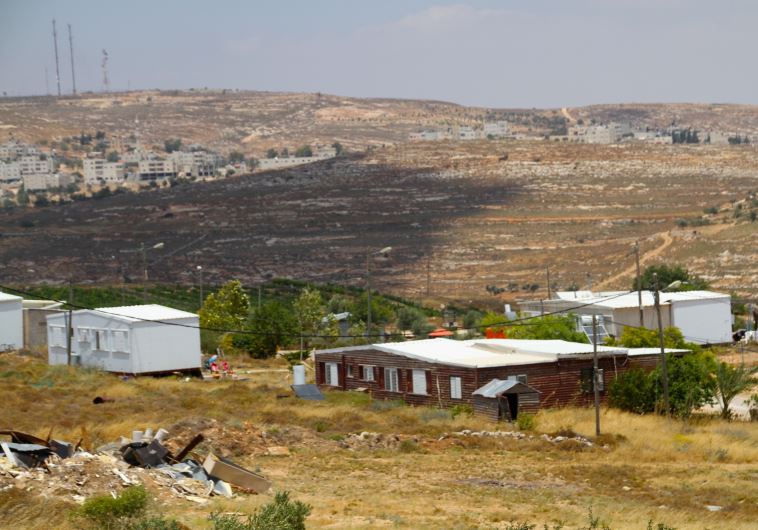Controversial settlement bill shelved over coalition infighting
The settlements bill is meant to allow the state to pay the Palestinian land owners on whose property settler homes were illegally constructed.
 The Amona outpost in the West Bank(photo credit: TOVAH LAZAROFF)Updated:
The Amona outpost in the West Bank(photo credit: TOVAH LAZAROFF)Updated: